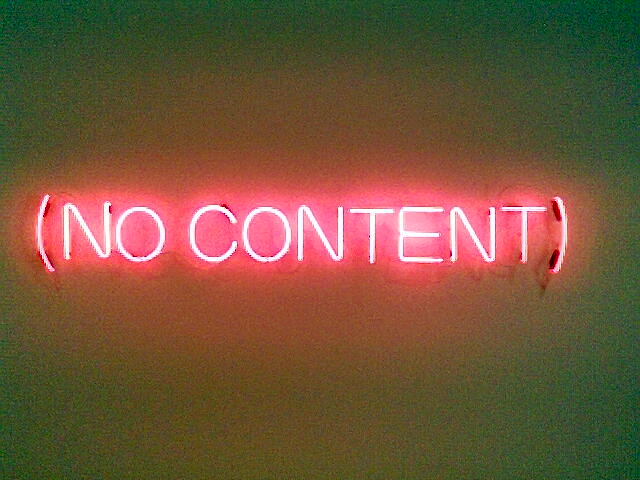 |
| Photo by Chris Dlugosz, CC BY 2.0 |
Atheism is virtually content-free. What do I mean by that? Atheism refers to a lack of belief in gods. If that seems simple, that's because it is. That's really all there is to atheism, and this is why most atheist bloggers and most atheist organizations do not attempt to limit our focus to atheism. Pause for a moment and consider what it would look like if someone did try to limit their focus to atheism. What would they talk about and/or write about? They could find creative ways to explain why they didn't believe in gods, shoot down various religious claims about gods, and...that might be about it.
But what about all the other things you might associate with atheism? What about skepticism, humanism, secular activism, critical thinking, reason, freethought, a commitment to reality-based decision-making, and all the rest? These things are related to atheism but far from synonymous with it. I'm not even sure it makes sense to consider them a part of it. And one important implication of this is that not every atheist will necessarily adopt all (or any) of these other things.
I believe this is important to understand for many reasons. Here are a few of them:
- Having an accurate understanding of atheism helps us recognize the great diversity in viewpoints among atheists (e.g., some atheists believe in ghosts, Bigfoot creatures, or ancient aliens; atheists can be found across the political spectrum; some atheists are not humanists).
- By realizing that atheism is not synonymous with these other concepts, we might be more accepting of other atheists (e.g., we might be better prepared to recognize that not every atheist will share our values) and religious believers (e.g., religious believers are not unique in their tendency to believe strange things without sufficient evidence).
- Because the meaning of atheism is so narrow, it is reasonable to expect that most atheists will not allow themselves to be constrained by it (i.e., they will likely have many other interests outside of atheism).
- Understanding what atheism is (and is not) reminds us just how little "I'm an atheist" tells us about someone. It may be part of the conversation, but it is only the beginning.
I'm often asked, "What does this post have to do with atheism?" You can find the brief answer here, but I suppose this post provides another way of answering the question. Atheism has little content, and there isn't much one can say about it without venturing into other topics. Most of the related areas I mentioned above (e.g., freethought, skepticism) have far more content and are likely to generate as much if not more interest among most people. Conflating atheism with these other topics is misleading and unnecessary.
None of this is intended as a knock against atheism or atheists. I do not consider it a bad thing that the definition of atheism is as narrow as it is. Like most atheists, I recognize that the "atheist" label communicates little about who I am or what I believe. To do that, I'll need to use several other labels. Not only am I okay with that, but I view it as one of the advantages of atheism; it grants me the freedom and flexibility to be all sorts of other things. I am not going to find much meaning in atheism, but that is okay. Meaning is something we make and not anything we must find.